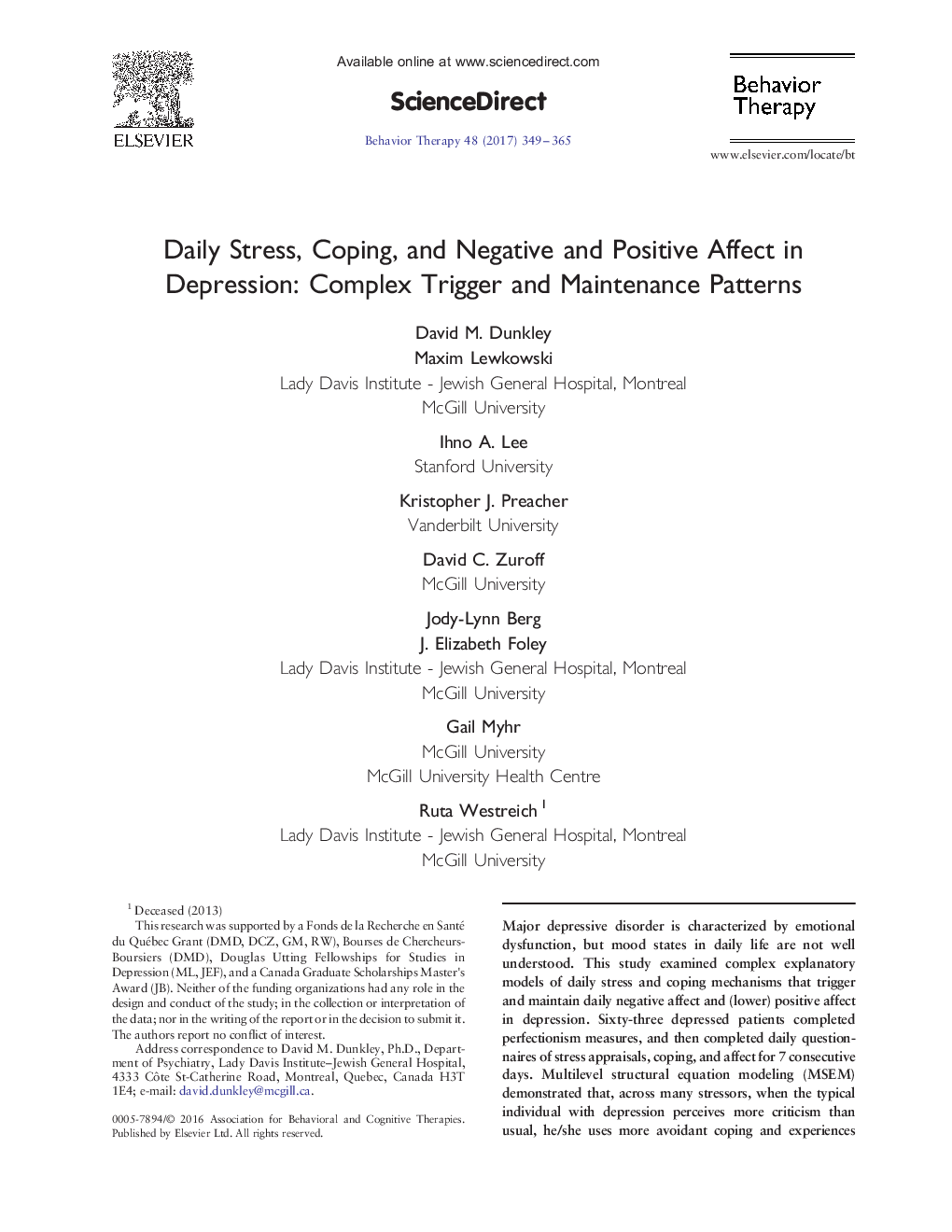| کد مقاله | کد نشریه | سال انتشار | مقاله انگلیسی | نسخه تمام متن |
|---|---|---|---|---|
| 5037987 | 1370242 | 2017 | 17 صفحه PDF | دانلود رایگان |
- This paper examines how stress and coping trigger and maintain daily affect in depression
- Depressed patients completed questionnaires for seven consecutive days
- Perceived criticism, avoidant coping, and stress increase when daily affect worsens
- Perceived control and problem-focused coping operate when positive affect increases
- Avoidant coping and stress maintain depressive mood of self-critical perfectionists
Major depressive disorder is characterized by emotional dysfunction, but mood states in daily life are not well understood. This study examined complex explanatory models of daily stress and coping mechanisms that trigger and maintain daily negative affect and (lower) positive affect in depression. Sixty-three depressed patients completed perfectionism measures, and then completed daily questionnaires of stress appraisals, coping, and affect for 7 consecutive days. Multilevel structural equation modeling (MSEM) demonstrated that, across many stressors, when the typical individual with depression perceives more criticism than usual, he/she uses more avoidant coping and experiences higher event stress than usual, and this is connected to daily increases in negative affect as well as decreases in positive affect. In parallel, results showed that perceived control, less avoidant coping, and problem-focused coping commonly operate together when daily positive affect increases. MSEM also showed that avoidant coping tendencies and ongoing stress, in combination, explain why people with depression and higher self-critical perfectionism maintain daily negative affect and lower positive affect. These findings advance a richer and more detailed understanding of specific stress and coping patterns to target in order to more effectively accomplish the two predominant therapy goals of decreasing patients' distress and strengthening resilience.
Journal: Behavior Therapy - Volume 48, Issue 3, May 2017, Pages 349-365
